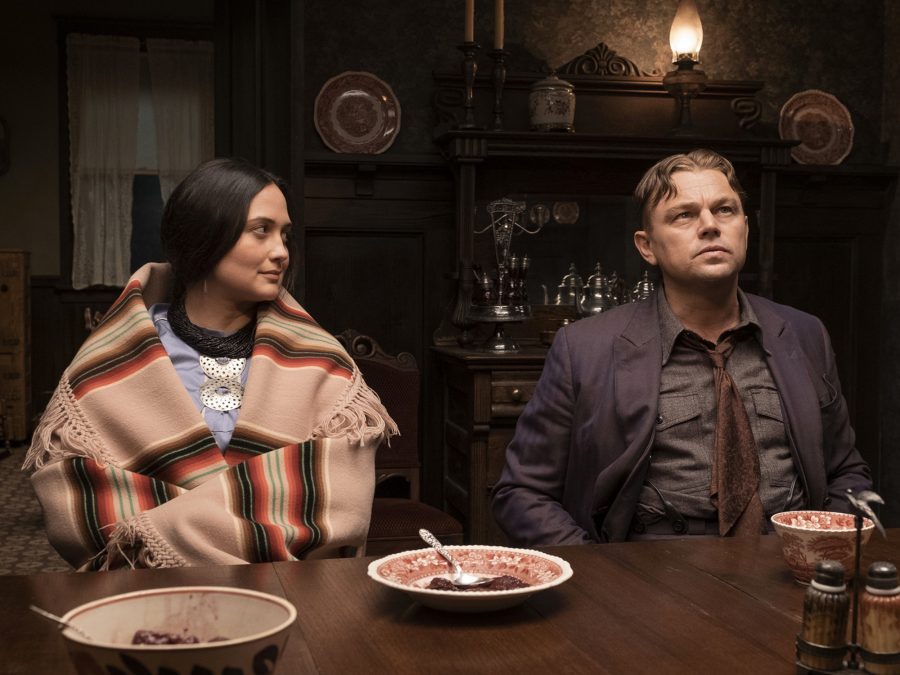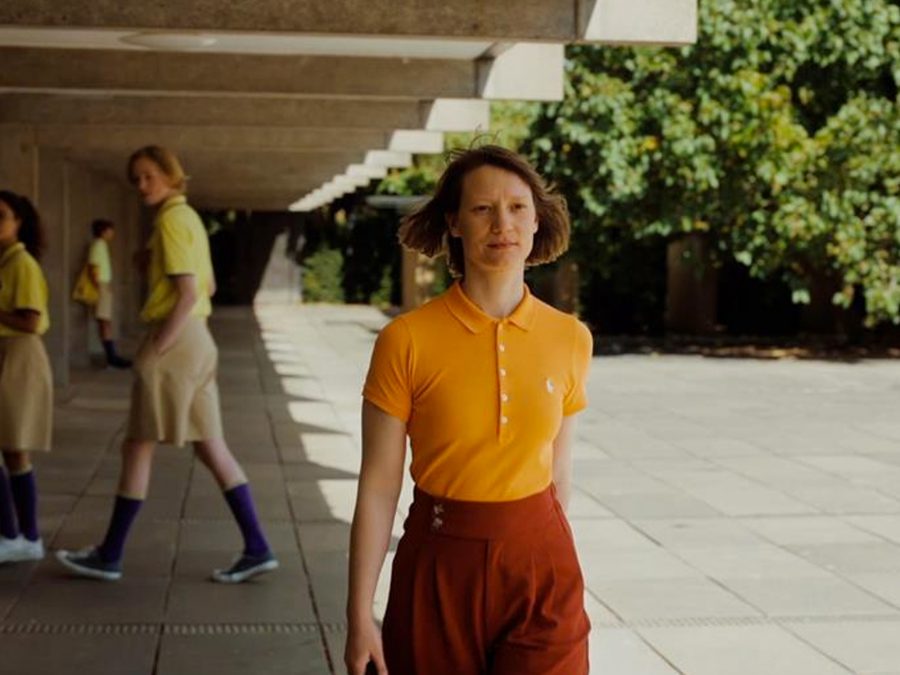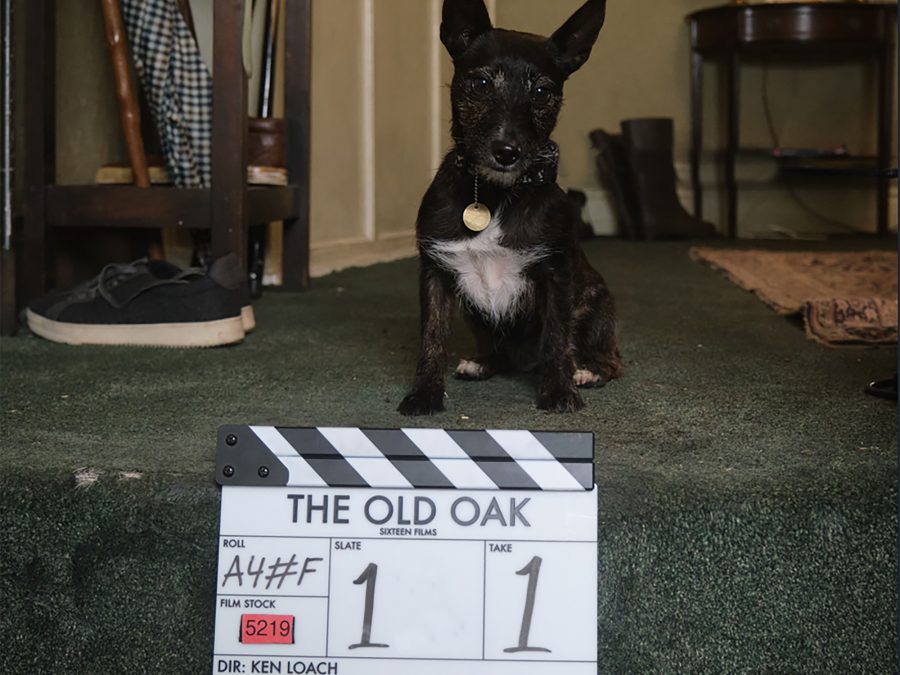Though at times over the past six months, it has felt like the end would never come, the Oscars are finally put to bed, and thus we have a merciful conclusion to the ever-lengthening awards season. And so we may now safely redirect our focus to the next major date on the movie-lover’s calendar, the Cannes Film Festival. The official selection won’t be announced until the second half of April, but we all need something to keep ourselves occupied until then, so let the marathon of speculation begin!
Those with their ear to the ground can roughly surmise at least a handful of the titles bound for glory on the Croisette this year, based on knowledge of which directors have an as-of-yet unseen film ready to go and who’s got a prior in with the selection committee. Below, we’ve put together a tentative wish list of twenty films with the potential to fill out the program at Cannes, along with ruminations on the likelihood of their making the cut. Those taken to betting would do well to put all their money on Marty. What are you hoping might make an appearence? Tweet us @LWLies.

Killers of the Flower Moon
He may be one of the most significant filmmakers on the face of the Earth, but Martin Scorsese isn’t really a competitive type of guy, his last movie to jockey for the Palme d’Or being After Hours in 1986 (and even that was well after the premiere in American cinemas the previous year). So there’s a guaranteed hubbub to the all-but-confirmed news that the first Western of his career and his first link-up with muse Leonardo DiCaprio in ten years will also send Scorsese back into the fray for the first time in decades. The prospect of Leo’s presence on the red carpet brings to mind the last Cannes debut with this level of can’t-miss excitement: 2019’s Once Upon a Time in Hollywood, which parleyed its hype into a huge box-office gross and a windfall of Oscar nominations. Scorsese’s financiers at Apple surely hope to take a similar path, with a full theatrical run planned for later this year.
Asteroid City
In 2021, The French Dispatch returned the Man in Corduroy to the Croisette following berths at the Berlinale for his last two films released since Moonrise Kingdom opened Cannes in 2012. His undoubtedly charming rendering of a “Junior Stargazer” convention in a Southwestern desert town shaken by happenings of cosmic proportions has provided programming head Thierry Fremaux with his other locked-in marquee title, bringing with it a slew of stars (of the actorly variety, that is, including Wes Anderson newcomers Margot Robbie and Tom Hanks). Distributor Focus has scheduled the theatrical engagement for Anderson’s latest into the early-summer slot that previously turned Moonrise Kingdom into a hit, meant to capitalize on the word-of-mouth that’ll begin in the Palais.
About Dry Grasses
As a past Palme winner, Turkey’s Nuri Bilge Ceylan has an informal standing invitation to return to Competition whensoever he pleases, a duly-earned privilege that he’s expected to exercise with his first film since 2018’s The Wild Pear Tree. By the sound of it, he’s set his sights on another politicized parable, though this one has a timeliness his primal, terse work often seems uninterested in: a young teacher has nearly wrapped up his required stint in a far-flung Anatolian village, but his long-awaited transfer to the big time in Istanbul falls into jeopardy when a pair of female students accuse him (correctly? falsely? who’s to say?) of sexual harassment. Who among us could’ve pegged Ceylan for a cancel culture guy?
May December
Todd Haynes’s latest isn’t literally a Mary Kay LeTourneau biopic, but it’s not not that, either. There’s something awfully familiar about Julianne Moore playing a female educator who entered into a tabloid-besotted affair with an underage Asian-American student (Charles Melton, surely eager to supplant Hot Archie television show Riverdale as the thing he’s best known for), though Haynes takes it in a novel direction from there. Instead of detailing their scandalous affair, he joins the couple twenty years after the fact, when an actress (Natalie Portman) observes the couple as research for a film dramatizing their story and reveals the fault lines between them in the process. With three Competition showings to date, a pair of world-class movie stars, and a grabby hook, Haynes is all but assured that a spot will be saved for him.
The Beast
French master Bertrand Bonello has had an up-and-down relationship with Cannes: Saint Laurent got him into Competition back in 2014, only for his incendiary follow-up Nocturama to get snubbed outright. (Rumor has it the controversial subject matter of the sexy teen terrorist thriller scared programmers off). Zombi Child returned him to the Croisette, albeit in the Directors’ Fortnight sidebar, but then he brought his pandemic lockdown whatsit Coma to Berlin. His latest effort sounds big enough to get him back into the main slate, boasting a higher-than-usual budget, a pair of bona fide stars in Léa Seydoux and George MacKay, and an ambitious sci-fi synopsis tracing a love story across one hundred and thirty years. It’s like the old saying goes: “If you want to get into Cannes, make sure Léa Seydoux is in your movie.”
The Empire
Gallic mainstay Bruno Dumont shot a pretty out-there take on the sci-fi space opera this past summer, which should put him in good stead for his fifth appearance in the Lumiere. The preeminent poet of France’s northern shores has taken to the Opal Coast of Li’l Quinquin once again, peering in on a small fishing village that’s been designated as a field of combat for knights from kingdoms on rival planets. The official press release also makes mention of “the birth of Margat, the resurgent Prince, purple and ugly, the Beast of the Endtimes,” so we can rest assured that Dumont’s off-kilter sense of humor and loosy-goosy relationship with realism haven’t gone anywhere. How far this intergalactic scale reaches has yet to be seen, however; feels weird to picture Dumont going all in on CGI.
Red Island
Robin Campillo earned a lot of new admirers in 2017, when his AIDS activism drama 120 BPM (Beats Per Minute) took the second-place Grand Prix. Their patience will be rewarded any day now, with Campillo’s Madagascar-set coming-of-age picture set for a 2023 debut. Circa 1970, a ten-year-old boy lives with his family in one of the last French military bases abroad, clinging to the final vestiges of the colonial empire. The blinders will soon be drawn from his innocent eyes, however, as he comes to realize his complicity in larger systems of power and control. Sounds like an homage to early Claire Denis seen through a kid’s-eye view, which is to say it sounds like something attending press will be eager to see.
Strange Way of Life
Cannes’ door will always be open to Pedro Almodóvar, even if he just wants to drop in to show off his latest short. After dipping his toe into English-language work with 2020’s half-hour Tilda Swinton showcase The Human Voice, he’s whipped up another short-form sketch with Hollywood-adjacent personnel: Silva (Pedro Pascal) rides a horse across the desert to visit one Sheriff Jake (Ethan Hawke), a dear friend he hasn’t seen in twenty-five years, unaware that their reunion will not necessarily be a happy one. Speaking about the project on Dua Lipa’s podcast — which, sure — Almodóvar described it as “a queer Western, in the sense that there are two men and they love each other.” The subject matters suits the genre subverter extraordinaire, clearly attuned to the roiling homoerotic subtext that already undergirds the stubble-faced, chap-clad Western.
The Royal Hotel
Kitty Green might seem an unlikely pick for Cannes, having no prior relationship to the festival and a relatively low profile despite a uniformly strong body of work. But here are the facts: her ripped-from-the-headlines thriller about a pair of backpackers spiralling out in an Australian mining town shot last summer, and has presumably finished post-production. The film’s producers passed on Sundance, and don’t have much apparent cause to hold out for the fall festivals. And they’re backed by American distributor Neon, an outfit with some weight to throw around. Cannes needs both female auteurs as well as up-and-comers to break up the parade of usual suspects. This could be a mutually beneficial pairing, and a sorely deserved platform for a filmmaker ready for wider recognition.
L’Été Dernier
It’s been a while since provocateur par excellence Catherine Breillat showed out at Cannes — that was 2007, for The Last Mistress — but it’s also been a while since Breillat worked at all. After a decade of radio silence, she’s back with another firestarter sure to get people talking. A lawyer (Léa Drucker) falls into a furtive yet intense love affair with her teenaged stepson (Samuel Kircher) from the previous marriage of her husband (Olivier Rabourdin), throwing her personal and professional lives into chaos. It’s been too long since we’ve been able to drink in Breillat’s pungent mix of chilly eroticism and taboo-prodding revulsion. Between this and Todd Haynes’ latest, we just need one more age-gap romance in which an older woman preys upon a younger man to clinch the trend pieces.

Club Zero
Friend of the fest Jessica Hausner has already been showing her latest drama to buyers, presumably in the hopes that they’ll be able to announce a splashy acquisition deal around the expected premiere in Competition. The cunning anti-horror picture Little Joe got her into the big dance back in 2019, and it stands to reason that another English-language feature with a name-brand cast will do the same; the improlific Mia Wasikowska makes a rare appearance as a private school teacher who lures her students into a cult oriented around “extreme nutrition” (read: disordered eating), a provocative premise in all likelihood hiding more than meets the eye.
Napoleon
Though a release date has yet to be set for Ridley Scott’s epic portrait of the famously diminutive conqueror, word that the cut has been locked and sparingly screened for long-lead press suggests that an eye-grabber Cannes unveiling could be in the cards. The middlebrow populist Scott may seem an odd fit for Europe’s highest-prestige festival — he last appeared in Competition all the way back in 1977, when he won the Best Debut Film award for his freshman feature The Duellists — but between the overall Frenchness of the history at hand and the international cast (including Joaquin Phoenix, Vanessa Kirby, Tahar Rahim, and Ludivine Sagnier), he may very well plant his flag on the one territory he’s never been able to annex.
The Zone of Interest
Despite a shakily-sourced story last month that Jonathan Glazer was still hard at work on his adaptation of Martin Amis’ novel, the current scuttlebutt confirms an earlier tip that he’d have his act together in time for May. His first feature in a decade puts a psychosexual spin on the Holocaust in the grand tradition of The Night Porter, as a Nazi officer develops forbidden feelings for the wife of his camp’s commandant. Glazer’s already signed a deal with A24 to coproduce and distribute, and he’s got a pair of leads that each bring their own Cannes cred to the table as well. (Christian Friedel appeared in Michael Haneke’s Palme winner The White Ribbon way back in 2009, and Sandra Hüller starred in the glowingly-received Toni Erdmann in 2016.) Unpredictable in every way aside from his consistent excellence, Glazer would be an attention-attracting get for the Competition.
Monster
No days off for Hirokazu Kore-eda, the Palme winner who appeared in Competition just last year with the Korea-set unconventional family drama Broker. He’s going home to Japan for his next project, where he’s already set a public release date at the beginning of June, positioning him perfectly for a world premiere on the Promenade one month earlier. No plot details have been shared about this intriguing project, but we can safely assume the monster of the title to be of the metaphorical rather than literal persuasion, writer Yuji Sakamoto’s experience being in domestic dramas close to Kore-eda’s usual purview of household discord. In any case, audiences can safely bank on another round of quiet emotional devastation.
Poor Things
From winning the Un Certain Regard sidebar’s top prize in 2009 for Dogtooth to Competition showings in 2015 with The Lobster and 2017 with The Killing of a Sacred Deer, Yorgos Lanthimos and Cannes go way back. So that makes the fest a logical launching pad for his Frankenstein riff known to be in the can, what with the director already deep in production on his enigmatically-titled next picture And. Poor Things features Emma Stone as a drowned woman brought back to life by swapping her brain out for that of her unborn child, her doctor father (Willem Dafoe) performing the operation to the horror of her brutish husband (Mark Ruffalo). It could be a little outré for a full-blown Oscar play, despite Lanthimos’ strong awards-season showing for The Favourite, but it would fit right in around the Croisette.
Anatomy of a Fall
Still relatively early on in her career, Justine Triet made her first trip to Cannes in 2019 for the somewhat coolly-received psychothriller Sibyl, which leaves her poised for another go-round now that she’s completed her next film. She’ll continue on with her pet themes of obsession and doubt in the Hitchcockian tale of a German writer (Sandra Hüller, keeping busy these days) whose husband (Swann Arlaud) tumbles to his death under mysterious circumstances near their mountain home, the only one who really knows the truth being their young son (Milo Machado Graner). There’s greater scrutiny than ever on the lopsided gender imbalance in the Competition lineup, and Triet’s evident talent dispels any questions of box-ticking.
The Pot-au-Feu
Less so than the regulars making their umpteenth trip to the south of France, the fun of the Cannes program announcement comes from the less-active, left-field directors tempted to break a hiatus by the lure of a Competition spot. This year’s Jerzy Skolimowski Award for Most Welcome Comeback could go to Tran Anh Hung, already a Camera d’Or recipient for 1993’s The Scent of Green Papaya, an essential piece of his native Vietnam’s national cinema. His first film in seven years seems to be done, another French-language project to follow 2016’s Eternity, featuring Juliette Binoche as a humble cook and Benoit Magimel as the haughty gourmand employing her. (The French dish known as the pot-au-feu, by the way, combines a broth course with a second course of the beef and vegetables low-boiled in it. The eventual Alamo Drafthouse theme menu writes itself.)

The Old Oak
The filmmaker semi-affectionately referred to as “Uncle Ken” by Britons was seen shooting last May, which should give him plenty of time to ready his latest searing indictment of the state’s failures in the UK. He’s generally taken aim at the foibles of government-sponsored capitalism, whether that’s the inhumanity of the under-regulated gig economy (as in Sorry We Missed You), or the demeaning insufficiency of England’s unemployment benefits program (as in the Palme-winning I, Daniel Blake). But his new project weaves in themes of race less common in his filmography, focusing on an economically deprived former mining village shaken by the sudden influx of Syrian refugees, the town’s sole pub transformed into a culture-clash battleground. Only time will tell whether this daring setup will cast the 86-year-old Loach as keyed-in and conscious, or tin-eared and out-of-touch. Or perhaps both! Odds are we’ll get an answer soon enough.
Oppenheimer
The multiplex may be the natural habitat for the megabudgeted blockbusters of Christopher Nolan, but Cannes’ Out of Competition section has cultivated a friendly relationship to American studio tentpoles, opening Mad Max: Fury Road and Top Gun: Maverick in recent years. Nolan’s recounting of the atomic bomb’s invention and fallout would bring a surge of star wattage to the red carpet, armed with a sprawling ensemble that collects Cillian Murphy, Florence Pugh, Emily Blunt, Matt Damon, Robert Downey Jr., Rami Malek, Kenneth Branagh, and about two dozen more name-brand actors. With each new undertaking, Nolan seemingly sets out to construct the biggest film ever made; this time, he may have built something so immense that not even the highest-brow gatekeepers of culture can deny it.
Do Not Expect Too Much From The End Of The World
Romanian rabblerouser Radu Jude has never graced the shores of the Riviera before, but his Golden Bear win at the Berlinale for the widely praised sex comedy Bad Luck Banging or Loony Porn put him closer to the center of the global art cinema radar. Just last month, he sold the rights to a presumably completed film pitched in the same register of social satire, also divided into clearly demarcated parts: in the first, a beleaguered production assistant criss-crosses Bucharest to cast a workplace safety video for a multinational conglomerate, and in the second, one interview subject’s testimony raises alarm bells at the company PR department, and the in-progress industrial film must be retooled to avoid disaster. With tongue ostensibly in cheek, Jude has called this “a film with no depth” and “even more amateurish than my last films.” Who’s not going to have a good time with that?
The post Croisette wishes: 20 films we’d like to see at Cannes in 2023 appeared first on Little White Lies.


0 Comments